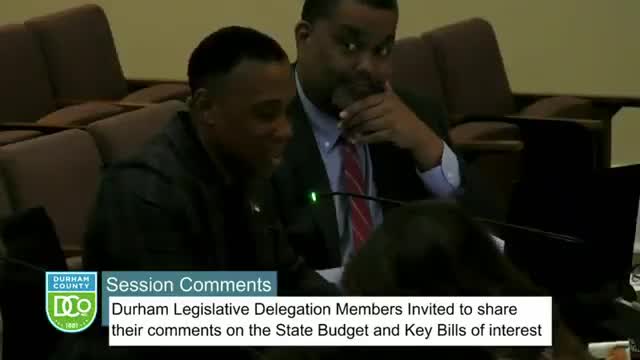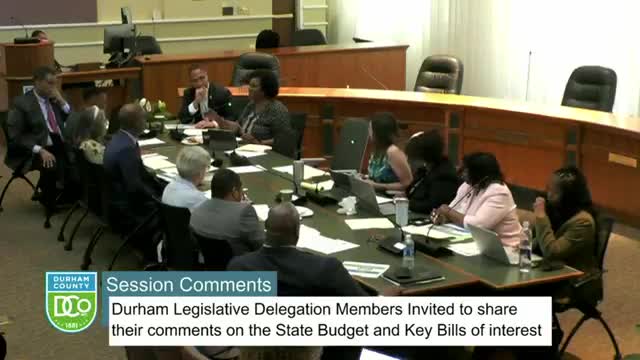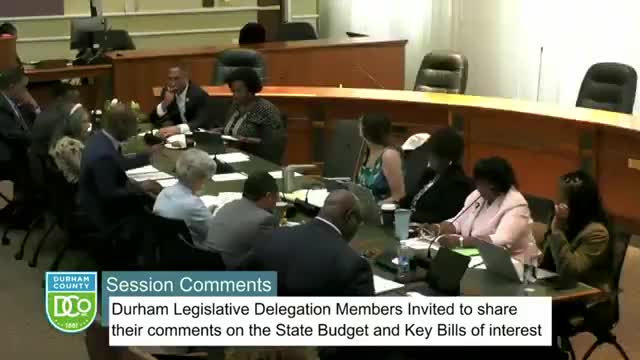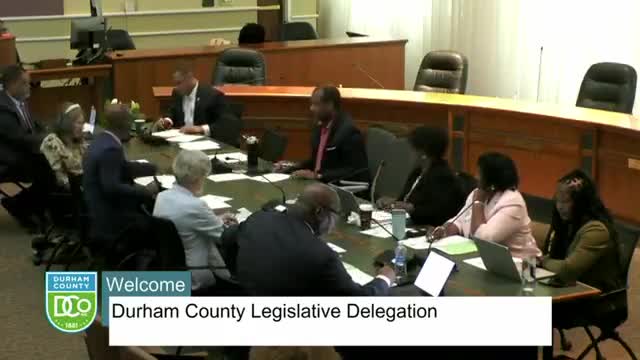Article not found
This article is no longer available. But don't worry—we've gathered other articles that discuss the same topic.

Teacher and staff housing bill for Durham did not survive crossover, delegation says

Durham officials warn proposed state land-use bills could upend UDO rewrite and housing plans

Durham delegation outlines child-care financing, supply and zoning ideas; task force recommendations expected

